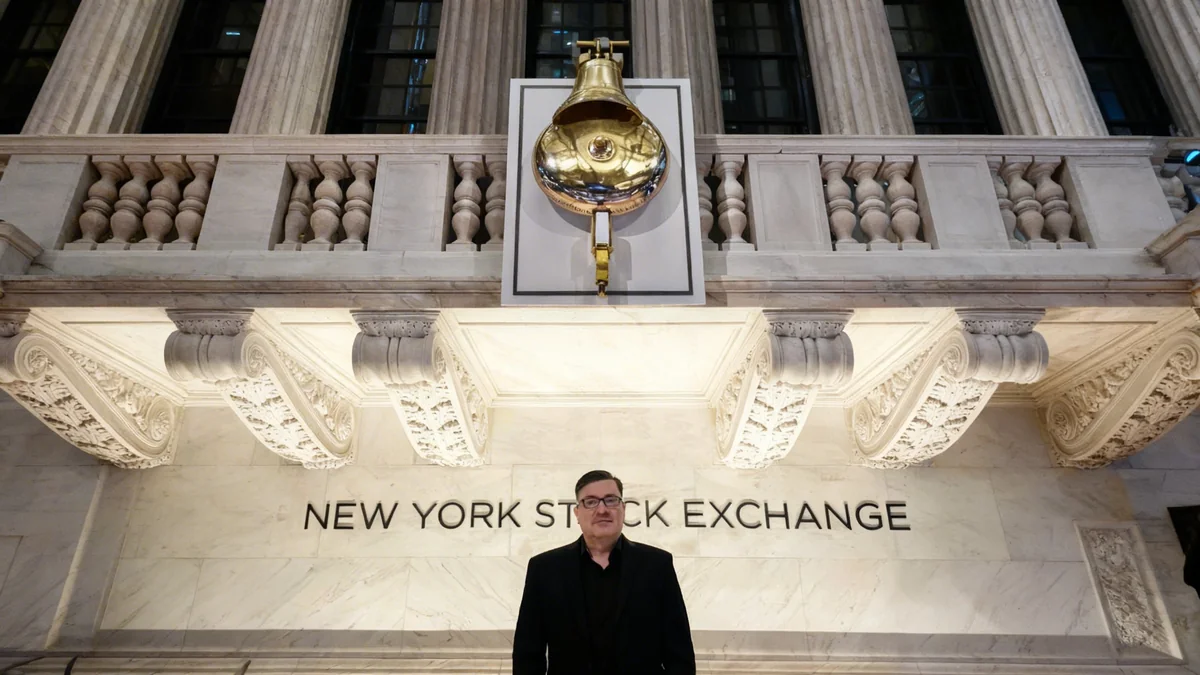Douglas Elliman, a prominent high-end residential real estate broker, currently presents a potentially undervalued investment opportunity. Recent reports of takeover interest highlight the company's strong market position, especially within key luxury areas such as New York. Despite its significant presence and a reported acquisition offer, the company's stock trades at a notable discount compared to these proposals and its industry peers.
Key Takeaways
- Douglas Elliman stock trades below recent reported takeover offers.
- The company is a leading high-end residential broker in the U.S.
- Its valuation is significantly lower than major competitors.
- Improved profitability has been noted under new leadership.
- Potential acquirers could include Berkshire Hathaway or Savills.
Reported Takeover Bids and Valuation Discrepancy
Reported takeover interest in Douglas Elliman (DOUG) suggests a higher intrinsic value for the company than its current stock price reflects. Reuters reported in March that Anywhere Real Estate (HOUS) initially offered $5 per share for Douglas Elliman. Anywhere later revised its offer to more than $4 per share in May, according to Bloomberg. Douglas Elliman ultimately rejected this offer, deeming it insufficient.
The stock closed at $2.80 per share on Wednesday, September 24, 2025, a 2.1% decrease. This price is considerably lower than the reported offers. Douglas Elliman did not comment on these reports when asked.
Quick Fact
Douglas Elliman's average transaction size in the first half of 2025 was almost $2 million, exceeding that of its competitors.
The company, established over a century ago, is currently valued at approximately $250 million. This figure rises to about $325 million when accounting for dilution from a $50 million convertible bond deal. Barron’s estimates Douglas Elliman’s enterprise value, which is its equity market capitalization minus net cash, to be around $200 million. This calculation is based on the company having $136 million in cash as of June 30.
Market Position and Industry Consolidation
Douglas Elliman ranks as the fifth-largest real estate broker nationally. It holds a strong market share in key luxury locations. These include Manhattan, the New York City suburbs, the Hamptons, Palm Beach, Florida, and Aspen, Colorado. The residential brokerage industry in the U.S. remains highly fragmented.
The company's valuation appears low compared to its peers. For instance, Compass, a leader in the industry, has a market valuation of $4.6 billion. Anywhere's enterprise value exceeds $4 billion. Anywhere recently agreed to be acquired by Compass for over $4 billion, including assumed debt. If Compass and Anywhere merge, they would control about 20% of the U.S. residential brokerage market.
"Douglas Elliman has elevated market share in some of the priciest real-estate markets in the country, including Manhattan, the New York City suburbs, the Hamptons, Palm Beach, Fla., and Aspen, Colo."
Revenue and Valuation Metrics
Douglas Elliman is projected to generate about $1 billion in revenue this year. Based on its enterprise value, this means the company is valued at 20% of its sales. This is a significant discount when compared to Compass, which is valued at roughly 65% of its projected 2025 sales. Like many smaller companies, Douglas Elliman receives minimal coverage from financial analysts.
Background on Douglas Elliman
Douglas Elliman was spun off from Vector Group in late 2021. Its stock initially traded around $10 but declined until this year. The company has faced profitability challenges in recent years, partly due to lower transaction volumes in the real estate market.
Improved Financial Performance and Leadership Change
The company's financial health has shown improvement since Michael Leibowitz took over as CEO in 2024, replacing Howard Lorber. Douglas Elliman operated at roughly breakeven during the first half of 2025, measured by adjusted Earnings Before Interest, Taxes, Depreciation, and Amortization (EBITDA). This is a notable improvement from a $15 million loss in adjusted EBITDA during the same period in 2024. This turnaround suggests a strengthening in the company's operational efficiency and market responsiveness.
Potential Future Acquirers
With Anywhere Real Estate now aligning with Compass, the field of potential acquirers for Douglas Elliman changes. Several companies could still show interest. Berkshire Hathaway, which has a large real estate brokerage division, is one possibility. Its real estate business reported about $4 billion in annual revenue and $30 million in operating profits in the first half of 2025.
Savills (SVS), a high-end U.K.-based residential broker and property management firm, also represents a logical candidate. Savills has a market value of almost $2 billion and currently lacks a substantial presence in the U.S. market. A combination with Douglas Elliman would create a powerful international residential brokerage firm.
Key Data Points
- Douglas Elliman enterprise value: ~$200 million
- Projected 2025 revenue: ~$1 billion
- Valuation as % of sales: 20% (vs. Compass at 65%)
Douglas Elliman recently ended its alliance with U.K. broker Knight Frank earlier this year. This move suggests the company is building its own international operations. A trans-Atlantic partnership could significantly expand its global reach.
Company's Stance and Regulatory Scrutiny
One factor influencing takeover prospects may be Douglas Elliman's apparent preference to operate independently. The company did not publicly address the reported takeover interest during its second-quarter conference call. Barron's also found no mention of the reported offers in Douglas Elliman’s first or second-quarter 10-Q filings.
Separately, Reuters reported that Finra, the Financial Industry Regulatory Authority, is reviewing purchases of Douglas Elliman stock by a company insider. These purchases occurred around the time of Anywhere's reported bid in May. Finra declined to comment on this matter.
For investors, Douglas Elliman offers several potential avenues for growth. These include a return to consistent profitability, a more active real estate market, and the possibility of a future acquisition. The company's focus on the high-end market, combined with its relatively small market value, makes it an attractive target for larger firms seeking to expand their luxury real estate footprint.





